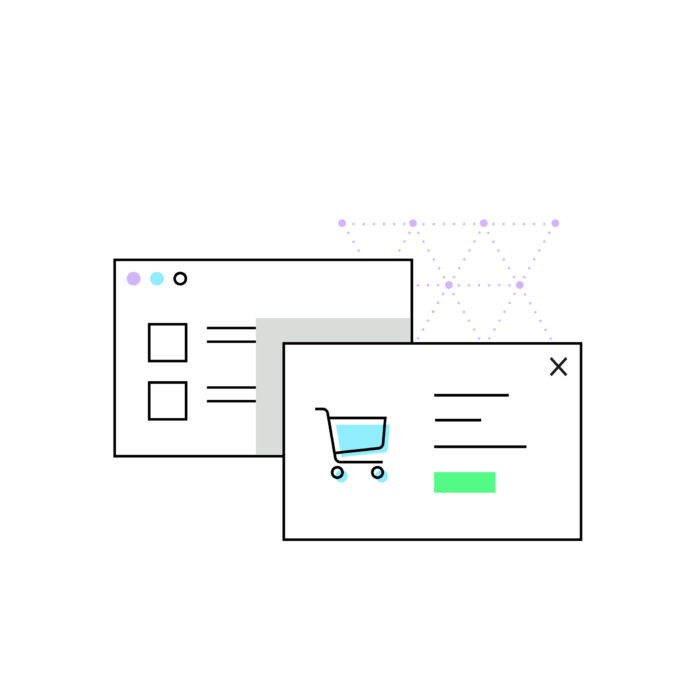Five e-commerce sales tax use cases that trip retailers up
by January 12, 2025
At TaxJar, we talk daily with online sellers who have questions about how to handle sales tax when selling online. While these questions can be as layered and varied as your business, we’ve noticed that the same scenarios tend to trip online sellers up time and time again.
And the stakes have never been higher. Due to the pandemic, Black Friday, Cyber Monday and all the days in between are forecast to smash eCommerce sales records. Plus, many traditional brick and mortar retailers have found themselves jumping on the eCommerce train for the first time this year. High volume sales and inexperience with the complexities of online sales tax brings an increased chance for trouble, especially when it comes to nitpicky administrative issues like sales tax.
Whether you are a forever-online store or you’ve just switched to selling online during 2020, this blog post will look at sales tax use cases that trip online retailers up, and how you can solve for them before they cause you bigger headaches.
When to register for a sales tax permit
One of the things that trips online sellers up is when to register for a sales tax permit, and in what states.
The rule of thumb for any retailer is to always register for a sales tax permit in your home state. Easy enough, right? Well, when selling online, things get a bit more complicated.
Online sellers are not only required to register for a sales tax permit in a state where they are located, they’re also required to register for a sales tax permit in any state where they have sales tax nexus. Nexus includes:
- A location (a store, office (even home office), warehouse, or even a home office)
- An employee (including contractors, salespeople, installers, etc.)
- Storing inventory (such as in a warehouse or Amazon fulfillment center)
- Having a 3rd party affiliate (someone who sends traffic and sales to your store in exchange for a cut of the profits)
- Doing temporary business (such as at a trade show or craft fair)
- Economic nexus (exceeding a certain sales volume or transaction amount in a state)
In other words, the owner of a brick and mortar store with one location in New York may only be required to register for a New York sales tax permit. But if that same store owner starts selling online, hires a customer service representative in Iowa, starts storing inventory in a warehouse in Nevada, and then exceeds the economic nexus sales threshold in California, she may need to register for sales tax permits in all of those states!
Read more about what creates sales tax nexus and when to register for a sales tax permit here.
Charging the right amount of sales tax
Sales tax is generally made up of a state sales tax rate plus local sales tax rates. For example, the state sales tax rate in Nevada is 4.6% as of this writing, and then local counties, cities and other special taxing districts can add additional taxes onto that 4.6% rate.
Sales tax is charged at the point of sale. When you sell at a brick and mortar store, the sales tax rate is always the same. It’s the state + local rates at your location. For example, if your store is located in Clark County, Nevada then (as of this writing) you would charge every customer who walks into your store and makes a purchase the 8.38% sales tax rate of your location.
But when selling online, things start to get tricky. In an eCommerce transaction, the point of sale is considered your buyer’s ship-to address. So if you are based in Clark County, Nevada but sell and ship an item to a buyer located in the city of Ely, Nevada then you would be required to charge the 7.73% Ely sales tax rate to your buyer.
Fortunately, most online stores like BigCommerce or Acumatica have a built-in sales tax collection engine. Just don’t forget to set up sales tax collection in each state where your online business has sales tax nexus. Forgetting to collect sales tax on each transaction means later paying the sales tax due out of your own pocket!
However, if you’re building your own online solution, you’ll need to make sure you are sales tax compliant, and TaxJar has your back. The TaxJar API provides the ability to connect with your eCommerce platforms, marketplaces, and carts in minutes and generate precise sales tax rates and calculations at the state, county, city and special taxing district level in real time.
Sell food? Clothing? Prepare for variable sales tax rates
Another use case that often trips online sellers up is the fact that different states consider different items taxable and non-taxable.
For example, clothing is a taxable item in most states. However, clothing is non-taxable in Pennsylvania. And in states like New York and Massachusetts, clothing items priced under a certain threshold are non-taxable. (Read more about clothing taxability here.)
The same goes for groceries. In a handful of states, grocery items are fully taxable. But most states consider grocery items a necessity and provide some form of sales tax break. For example, grocery is not taxed at all in many states. But in other states, groceries are taxed at a reduced rate or exempt from state tax while still subject to local (city, county, etc.) tax. (Read more about sales tax on groceries here.)
When selling items like groceries or clothing that are taxed differently across different states, be sure that your online store is set up correctly. If you forget to collect sales tax, you’ll be on the hook to pay that sales tax out of your profits. And if you do collect sales tax, such as collecting sales tax on grocery items in a state like California where groceries are tax exempt, you may end up with an unhappy customer.
Fortunately, the TaxJar API has online sellers covered here, too. With the API, just categorize your products as groceries, clothing, medication, textbooks or thousands of other supported product categories, and we’ll ensure you collect the right amount of sales tax (or no sales tax at all) from your customers, no matter how complicated their state’s sales tax rules and laws prove to be.
To charge or not to charge? Sales tax on shipping
Another problem that often trips up brick and mortar sellers transitioning to eCommerce is shipping. Having to pack up and ship every item rather than simply putting it in a bag and handing it over to your customer with a smile is a big change. And many states don’t help because they require that online sellers charge sales tax on shipping charges.
For example, say you sell a doll house to a customer for $200 and charge them $20 in shipping. In about half the states, you are only required to charge sales tax on the $200 price of the dollhouse. But in the other half of states, you are required to charge sales tax on $220 — the combined price of the dollhouse and the shipping charges.
Sales tax on shipping is one factor that states look at during audits, so be sure to collect sales tax on shipping charges where applicable. See a list of states that require sales tax on shipping charges here.
Drop shipping and sales tax
Drop shipping is when you make a sale to your customer, but instead of stocking that item yourself, you purchase the item from your vendor and have them “drop ship” it directly to your customer. While drop shipping is a popular business model, it also creates complications when it comes to sales tax.
For one, drop shipping involves two sales:
- The sale from your vendor to you
- The sale from you to your buyer
And both of those sales may or may not require that someone — you, or your vendor — collect sales tax.
Fortunately, you have options here. The best option is for you to provide your vendor with a resale certificate. A resale certificate allows you, as a reseller, to buy the item from your vendor tax free. But if your vendor won’t accept your resale certificate, you may be required to both charge sales tax to your buyer and pay sales tax to your vendor. In this scenario, it’s often worth it to evaluate whether your drop shipping relationship with that vendor is profitable for your business.
To complicate matters, who collects sales tax from who depends on whether you and your vendor have nexus in the state where your buyer is located.
We get that this is a real head scratcher, so we’ve put together a blog post about managing drop shipping and sales tax.
As you can see, sales tax compliance is challenging. There are so many important details that businesses must be aware of to stay compliant and avoid penalties. TaxJar can make compliance easier, by managing all the different aspects, including keeping you updated on where you have nexus, registering for sales tax permits, and automating sales tax filing and remittance. To learn more about TaxJar and get started automating your sales tax compliance, start a free, 30-day trial today.







